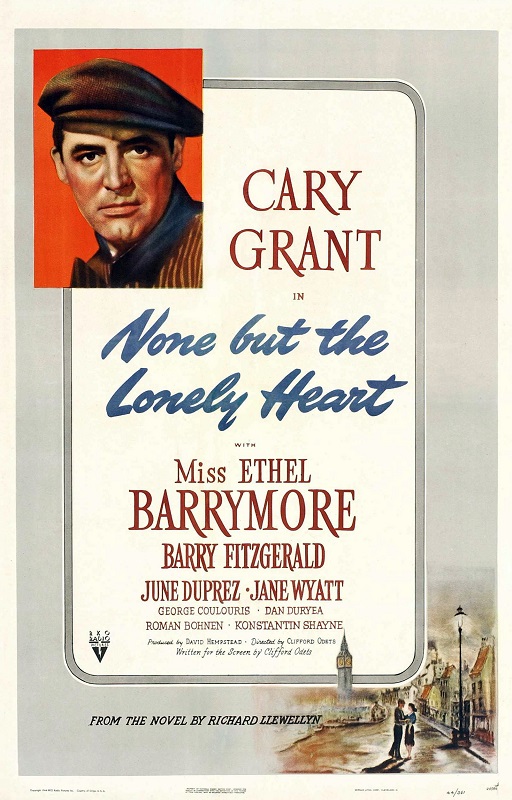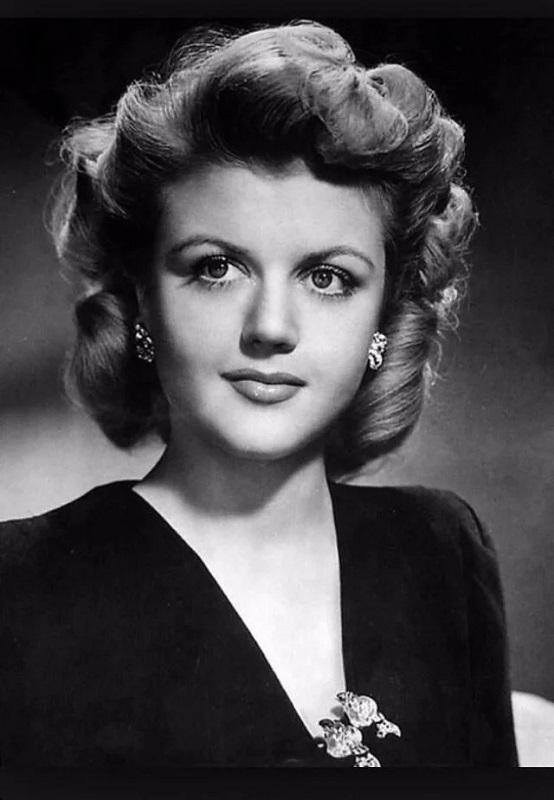

1944 – Ethel Barrymore
None but the Lonely Heart
Ethel Barrymore did a fine job as Ma Mott, the mother of Ernie, who was played by Cary Grant. This has to be mentioned, because I think Grant was miss-cast for the role, but Barrymore did a good job anyway. However, she had the same problem as he did, though I think she handled it better than he did. In fact, she might have played the part the way she did in order to compliment her more famous co-star. You see, Grant’s Cockney accent wasn’t very good. He was simply American. And while Barrymore’s accent was marginally better than his was, she was at least more consistent. And she took home the Oscar for her efforts, so why not?
As Ernie’s mother, Ma Mott started out as a woman deeply disappointed in her son’s complete lack of responsibility. In fact, she gives him a good slap on the face when he returns home and brags about being a homeless, jobless tramp. But as he stays on and makes an effort to help her out around her antique store, her anger with him fades and she remembers that she still loves him. And it was that motherly love that drove her to go into business with criminals, selling stolen goods in her store in order to make money for him.
Barrymore played the part with a seriousness that made her performance authentic. She created a multi-layered character who could be terse and even gruff in one scene, but sad and tired in the next, and then again sly and joking in the next. She did it all with a kind of calm ease and confidence that was endearing. She gave us a kindly old woman who loved her son, despite his general neglect of her over the years. And in every scene, we see her as a tired and worn out woman, because oh yeah, Ma Mott was also dying of cancer. That exhaustion showed through even when she was taking a playful jab at a jealous friend.
But I think it was her final scene that earned her the Oscar. She has been arrested for selling the stolen goods, and when Ernie came to visit her in the jail hospital, her eyes were brimming with tears of shame. Barrymore really sold the moment, and she stole the scene. And her on-screen chemistry with Grant was perfect. She did a fantastic job, and I really think she earned her award.













































































